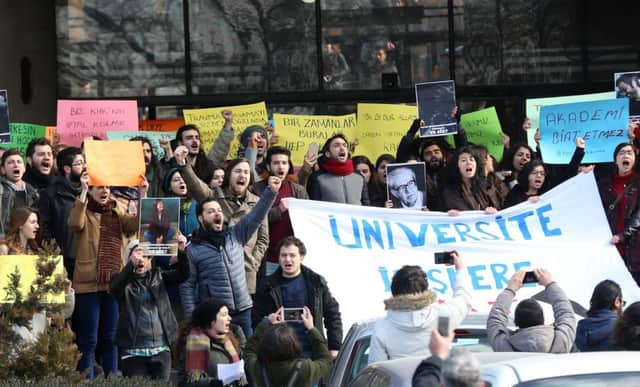St Andrews professor highlights plight of Turkish academics


Professor Stephen Reicher of St Andrews University this week returned returned from being an international observer the trial of a Turkish colleague who has been charged with terrorist propaganda for signing a peace petition.
Speaking to The Scotsman, Professor Reicher said he was shocked at the treatment of those who speak out against President Erdogan and is now exploring emergency funding and sanctuary scholarships for academics caught up in repressive regimes.
Advertisement
Hide AdAdvertisement
Hide AdProfessor Reicher found himself in Istanbul High Court this week for the trial of a fellow psychologist, whose identity he is anxious to protect. He was there under the auspices of the International Society for Political Psychology.
Two years ago, his colleague was one of 1,128 academics who signed a “peace petition” which condemned the Turkish government’s attack on the Kurds for widespread attacks on civilians and humanitarian abuses. She became a victim of President Erdogan’s response, the signatories denounced as anti-Turkish and terrorist sympathisers.
“There is something Kaftaesque about this,” Professor Reicher said. “She didn’t know until she got into that court room what she was charged with. How can you prepare a defence in that situation? The evidence against her is simply the wording of the petition that she signed. She was just expressing a sense that what is going on isn’t right.”
During his short stay in Turkey there was further evidence of the brutal treatment of those who challenge the government. The Turkish Medical Association dared to criticise an incursion into northern Syria.
“The Turkish Medical Association made the rather self-evident point that war is bad for human well-being. The response of the regime was to declare them terrorists and call them filth. The night of the trial we attended they broke into the houses of 11 leading members of the Turkish Medical Association and put them prison,” he said.
Professor Reicher’s objection to what is happening in Turkey is heightened by his own history. His maternal grandfather Onissim Burawoy escaped Nazi Germany thanks to the Academic Assistance Council.
“If it wasn’t for academic solidarity, I wouldn’t be here so I feel a sense of personal obligation,” he said.